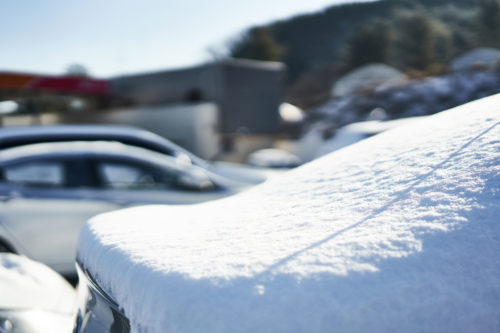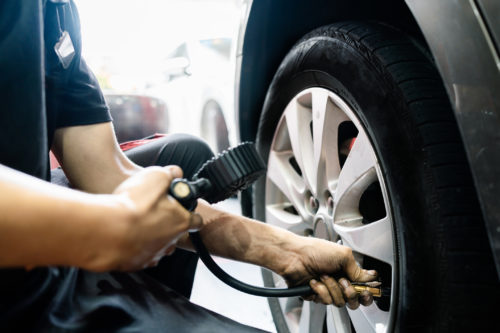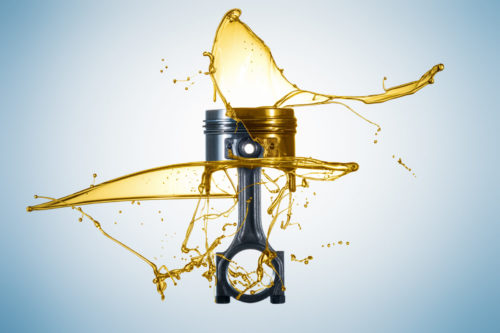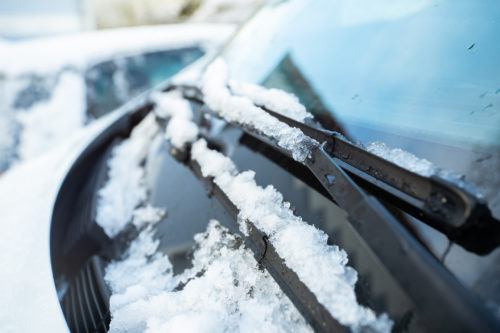Protecting Your Car From The Harshness Of Winter
Driving through snow-covered landscapes can be beautiful and exciting, but it’s no picnic for your car. Whether you live in a region that experiences snow or are simply driving through snow-clad terrain, the sharp drop in temperature can make things difficult for your car. To help your car brave the winter, you need to understand how the cold season can harm your car – and what you can do to protect it:
CORROSION

Unlike rain, the corroding effects of snow might not be immediately apparent. As the snow melts and turns into water, it finds its way into various parts of your car, especially its underbody, and can cause rust to set in.
If you live in a place that experiences heavy snowfall, your local government body might spray salt on the roads to lower the freezing point of snow and cause it to melt faster. This salty snow/water is extremely corrosive to your car’s metal body. To prevent corrosion, you can treat your car with an anti-rust chemical, park it indoors as much as possible, and regularly wash it with high-pressure water jets to wash off caked snow and salt.
LOSS OF TYRE PRESSURE

Tyres lose air pressure faster in colder weather. This is because air compresses as it gets colder. As it compresses inside tyres, the pressure in the tyres will drop. Driving with underinflated tyres can cause the car to handle unpredictably while also resulting in premature wear and tear on the tyres themselves.
Drivers should check their tyres more frequently during the winters and top up air to ensure they are running on pressures recommended by the manufacturer. Ford owners can use the FordPass™ mobile app to remotely check their tyre pressures and even receive alerts when the air pressure falls below the optimum level. The ability to check your tyre pressure anywhere and at any time allows you to ensure that your Ford’s tyres are always inflated just right.
THICKENING OF CAR FLUIDS

The low temperatures during winters can cause many of your car’s fluids to thicken. More viscous fluids might not circulate readily, and as such, will lower the efficiency and health of your machine. Your car’s fluids work best at an optimum temperature.
With modern cars, the best way to reach this temperature is to get the engine running. Instead of warming up by idling, drive your car 15-20 seconds after starting it to get everything up to a good temperature. To ensure your car’s fluids don’t get too sludgy, consider parking it indoors overnight where it’s comparatively warmer. It’s also important to top-up your antifreeze, to prevent the engine’s cooling system from failing.
HIGHER FUEL CONSUMPTION

Your car is likely to consume more fuel in the winter for several reasons. First, the engine and other parts of the drivetrain take longer to reach their optimal operating temperature and therefore run with reduced efficiency for longer. Secondly, many drivers are likely to use heating systems in their cars, which consume more fuel and lower efficiency. Because of this, it is important to always maintain at least half a tank of gas or more. You don’t want to be stranded in the cold without enough fuel in the tank to at least run the heater.
WINDSHIELD AND WIPERS

It is not uncommon for your windshield to feature a layer of ice on its surface, inside and out, on cold winter mornings. Never use your windshield wipers to clear this ice; always use an ice-scraper tool. For ice layers on the inside, use your car’s defogger (all Ford cars are equipped with this feature) and then wipe away the melted ice. You should also make sure that you raise your wipers off the windshield when you park your car for longer periods, such as overnight, to make sure they don’t freeze to the windshield.
Modern cars are built to withstand extreme weather conditions, but a little bit of love and care on your part will go a long way in ensuring a long and healthy life for them. The winter car care tips listed above are easy enough for anyone to follow. Ford owners can rest assured of complete support from Ford for preparing their cars for snowy winters as well as getting access to genuine Ford parts, no matter where they live. There’s no harm the snow can do that we cannot undo!
Subscribe to our newsletter
Subscribe to our newsletter to stay upto date with latest news, offers and much more



